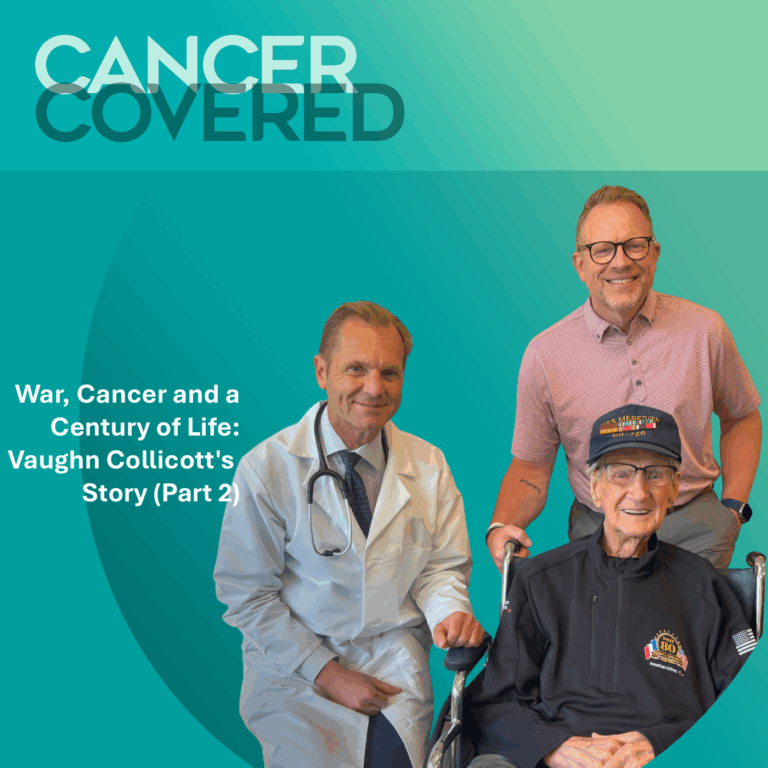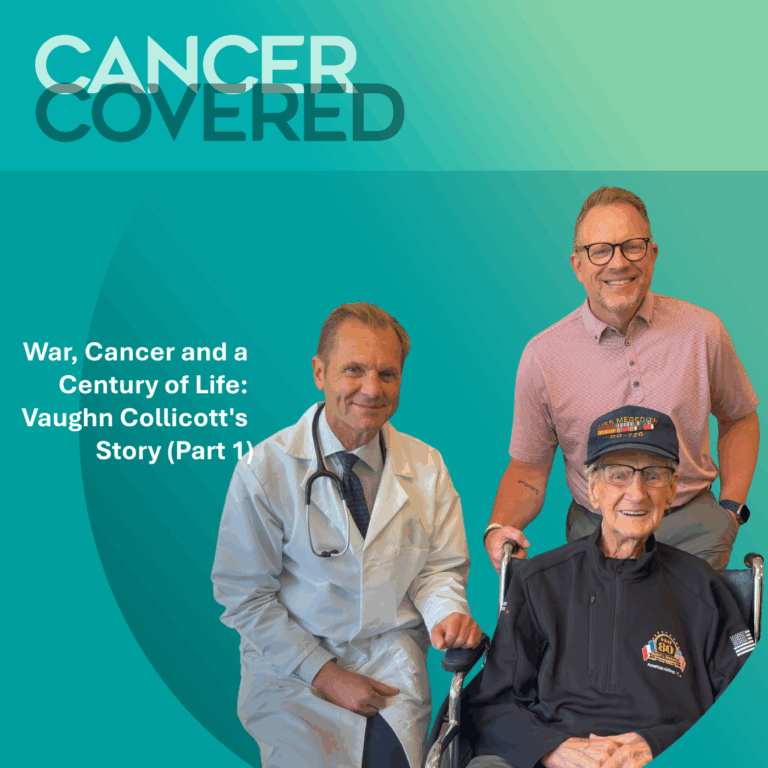Podcast: Play in new window | Download
Dr. Brian Burnette joins us again today to discuss the myths surrounding clinical trials. We debunk some of the biggest myths around clinical trials and cancer research and why doctors are required to request a patient’s informed consent prior to starting any treatment. We discuss how the enactment of the Affordable Care Act impacted patients’ ability to participate in clinical trial research and why Brian believes it’s in the health insurance industry’s best interest to cover and invest in clinical trial research. We discuss why it’s important to ensure patients understand they are in the driver’s seat of their treatment plan and have the ability to stop treatment or withdraw their consent to participate in a clinical trial any time they choose. We also debunk some of the misconceptions around data and identity security when participating in clinical trial research and how clinical trials have impacted the advancement of cancer treatment as well as the life expectancy for many people living with cancer.
Originally from Upper Michigan, Dr. Brian Burnette graduated at the top of his class at Michigan State University. He completed his internship, residency, and fellowship at the Mayo Clinic, where he also currently serves as an Instructor of Medicine. He has published and lectured on several cancer-related topics around the world and has a special interest in lymphoid malignancies – particularly lymphoma and myeloma. Currently, Brian is a Medical Oncologist and Hematologist at Green Bay Oncology, where he treats all types of cancers and adult blood disorders. As a husband and father of two, Brian enjoys playing baseball, sailing, fishing, hunting, and spending time with his family when he’s not treating patients.
“Doctors don’t make more money by providing clinical trial opportunities to patients. They probably make less – and that’s okay with us.”
– Dr. Brian Burnette
This week on Cancer Covered:
- Brian’s experience in cancer research and enrolling patients in clinical trials
- The importance of clinical trials
- The biggest myths around clinical trials for cancer research
- Why doctors are obligated to request a patient’s informed consent prior to beginning any cancer treatment program, including clinical trials
- How the Affordable Care Act impacted patient accessibility to participate in clinical trial research
- Weighing the benefits and risks involved in clinical trial treatments
- Understanding that patients are in complete control of their treatment plan and clinical trial participation
- Debunking the misconceptions around data and identity security when participating in clinical trial research programs
- How clinical trials have impacted the life expectancy rates and treatment plans for cancer patients
Join Our Free Monthly Support Group
No one should carry the burden of cancer alone. A cancer diagnosis can make you and your loved ones feel isolated and alone – just when you need support the most
Our social workers at Green Bay Oncology know that meaningful connection brings strength and healing. Sharing the experience in a safe space with others on a similar path is often powerful and therapeutic. That’s why we offer a free monthly virtual and in-person cancer support group facilitated for you and your loved ones.
Wherever you are on your cancer journey – you are always welcome.
To join us, visit: https://gboncology.com/events/
We’ve Got Cancer…Covered.
Thanks for tuning into this week’s episode of Cancer Covered with Green Bay Oncology. If you enjoyed this episode, please subscribe and leave a review wherever you get your podcasts.
Apple Podcasts | GooglePlay |Deezer | Spotify | iHeart
Be sure to share your favorite episodes on social media to help us reach more oncology professionals, cancer patients, and their families.
Join us on Facebook, Twitter, Instagram, and LinkedIn. For more exclusive content and information, visit our website.








